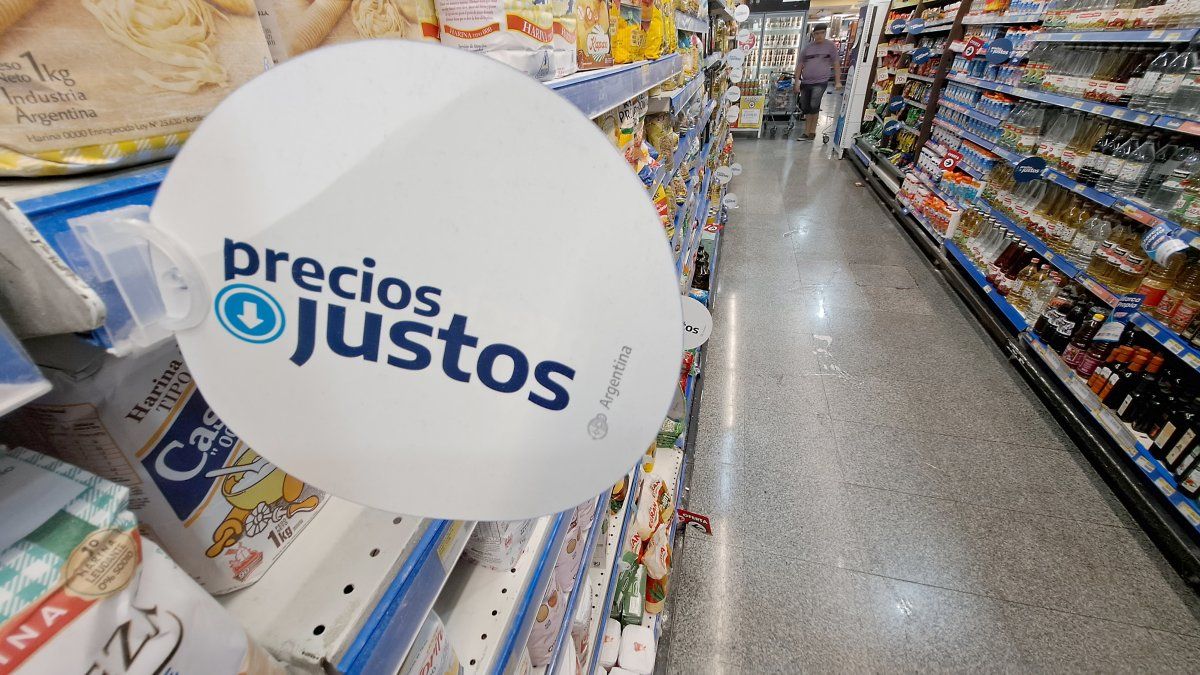According to a survey of Domestic Trade, there is a 61% supply of the products on the Fair Price list. “Without supply, the product is not on the shelf, and the program fails”, is the analysis they do in Economy. Of the mass consumption goods that are on the gondola, in 75% of the cases the signage is complied with and in 80% the agreed price is respected. There are almost 2,000 products that have had their prices frozen since November, while almost 50,000 have caps for increases of 4% per month.
The images that went viral from the survey carried out at the Día supermarket, or from the Truckers’ Guild controlling prices in distribution centers are part of a Tombolini search to “increase the percentage of supply.” According to official sources, he sought to go through all the points of the supply chain, to find at what point the “deviation” was.
The preliminary conclusion reached by both the Government and the supermarket is that the shortage arises from the lower supply of some large companies of mass consumption. Before the consultation of Ambit to several companies, some assured that they were complying with the deliveries, and others explained what the shortages in “some products” are due to.
The answer is that there are problems in some production lines due to difficulties in importing. But also, due to the increase in demand, as explained by a source from the private sector: “The supply is the same, it is not that the supply was restricted. But frozen products have the prices of the end of October, since then inflation has been 5% each month, so the goods are cheaper in the gondola, and not to mention compared to a local store, people end up going en masse to the chains, so there may be some missing”.
Fair Prices.jpg
From the large food companies, they note that the supermarkets are the ones who give the information on supply to the Secretary of Commerce. It is that the supermarkets also signed Fair Prices, and they need authorization to import, be it food, electrical appliances or clothing. In fact, some supermarkets revealed that Precios Justos is supplied by 50% on average, so there are some categories that are well below that value.
However, consumer associations have even worse numbers. According to a survey carried out by the Association for the Defense of Users and Consumers (Deuco) in 16 supermarkets, the percentage of compliance with Fair Prices is only 21%, while compliance with the prices agreed in the official list was higher. The supply varies greatly depending on the product: in oil it was practically 0%, noodles 10%, baked goods 13% and sugar 17%. However, in other cases it was higher: milk 95% or cheese 44%. Among the “worst suppliers there are three large companies,” said a trader. As they commented to Ámbito from the private sector, the oil case has to do with the fact that they are negotiating the implementation of public and private trusts.
In the coming weeks, the meetings between Commerce and the food companies will begin to extend Fair Prices, which, although it was scheduled to end in March, Massa announced that it will continue for another 4 months, until July. In fact, a publication in the Official Gazette ensures that it will continue throughout 2023. The meetings are expected to be more tense: the food companies assure that this was not what was agreed, while the entire import advance that had been discussed was not fulfilled either. On the other hand, companies are getting ready because the term they have to have the new containers expires in mid-October due to the labeling law, and they will no longer be able to request a new extension.
Source: Ambito
David William is a talented author who has made a name for himself in the world of writing. He is a professional author who writes on a wide range of topics, from general interest to opinion news. David is currently working as a writer at 24 hours worlds where he brings his unique perspective and in-depth research to his articles, making them both informative and engaging.




